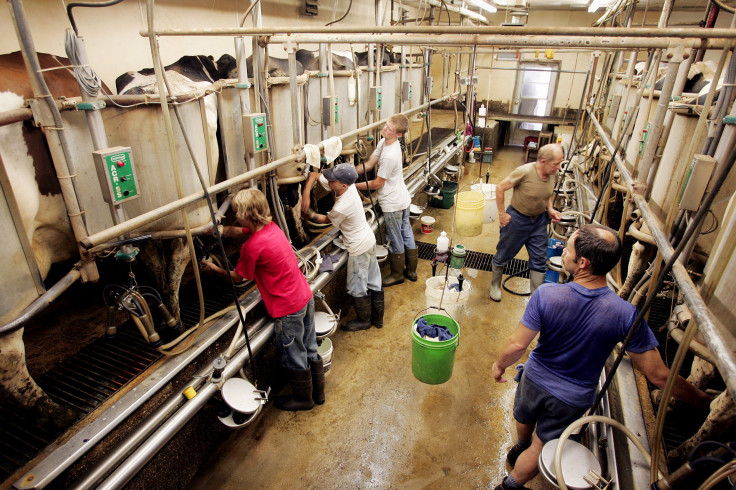Who Are ‘Local Milk People’? How Immigrants Impact US Dairy Industry

The world of social media became familiar with an unusual term on Tuesday — “local milk people” — when the Washington Post published Thursday the transcript of a telephone conversation between President Donald Trump and Australian Prime Minister Malcolm Turnbull.
The call in question took place in January when the president made it clear to Turnbull that the United States will not grant entry to refugees from offshore detention centers near Australia, contrary to the refugee resettlement deal struck during the Obama administration, which made way for the transfer of “1,250 refugees currently held in offshore detention centers in the Pacific Island nation of Nauru and Papua New Guinea’s Manus Island to the United States” because he believed the refugees were not people of good conduct.
“I guarantee you they are bad. That is why they are in prison right now,” Trump said, according to the Post. “They are not going to be wonderful people who go on to work for the local milk people.”
Read: USDA To Buy Cheese Worth Nearly $20M To Help Dairy Farmers
Even though the transcript was quite long and filled with other details, the phrase “local milk people” was picked up by Twitterati who wasted no time in unleashing a torrent of memes, calling out the president for trivializing workers in the dairy industry.
To be fair, it isn't my dream to go on to work for "the local milk people" either. https://t.co/r9bVfrkOKC
— Miranda Yaver, PhD (@mirandayaver) August 3, 2017
Your Mom is not going to be wonderful people who go on to work for the local milk people and various of scientists say so.
— “Gas Station Companies” (@LizMair) August 3, 2017
Everyone who came across the phrase immediately wanted to know what the president meant by “local milk people.” Trump was basically referring to small dairy farms and owners of small dairy businesses around the country.
Refugees who have legally obtained the immigrant status in the U.S., typically receive cash and medical assistance from the federal government during the first eight months of their stay in the country in order to help them settle down, according to Washington State Department of Social and Health Services.
Most refugees have always been a good fit for entry-level jobs due to their willingness to work for minimum wage and their dream to eventually strike it big. The dairy industry is one of the sectors that has provided ample opportunities to immigrants for decades. Some global humanitarian aid, relief, and non-governmental organizations like International Rescue Committee also provide special training programs for resettled immigrants so that they can have a better chance of getting hired by small dairy farms.
Jorge Montalvo, the deputy secretary of state for economic opportunity and director of the New York State Office for New Americans, said: "It’s kind of an ideal situation. The dairy industry needed more skilled workers… and you have folks who have some of these skills and are interested in doing it and you put them together," the Washington Times reported.
Walt Guterbock, the manager of Threemile Canyon Farms, in Boardman, Oregon, told VOA News that by hiring immigrants to work at his farms, he was fulfilling multiple objectives — filling job vacancies with cheap labor and giving the immigrants work opportunities that would allow them to take care of themselves and their families.
"Some of these people would end up in homeless shelters because they don't have a job,” Guterbock said. “So I think we've saved some of them from that fate.”
Getting jobs in dairy farms is ideal for some immigrants also because living in the countryside reminds some of them of settings they are familiar with, compared to adjusting to life in big cities.
“For me, I love living in the countryside rather than being in the cities,” Manoj Rai from Bhutan, the first immigrant hired by The New York program, a collaboration of Cornell Cooperative Extension, Community Action Angels and Alfred University, said. “Most of our people, where we were brought up, we were farmers and we still love to be on the farms,” he added.
It is predicted that 80 percent of workers in Wisconsin's dairy farms are immigrants. John Rosenow, a Buffalo County dairy farmer who works for Rosenholm Wolfe Dairy said the farms would take a big hit without foreign-born help because most U.S. citizens would be reluctant to take up physically demanding jobs for $13 per hour.
“If you remove Mexican labor, farms would go out of business. That’s a given,” Rosenow said, USA Today reported.
© Copyright IBTimes 2024. All rights reserved.





















